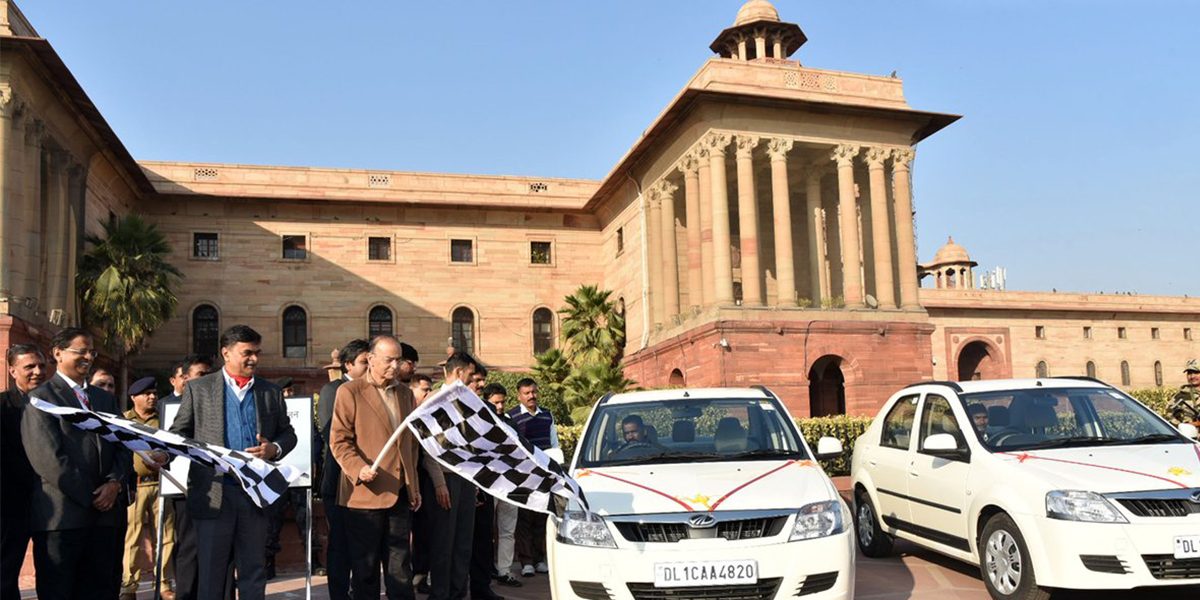Making promises and living up to them are altogether two different things. Observations of past many years of the Indian governments’ promises tell us. They very often make promises, and as quickly they forget about it leaving them in limbo.
The promise to electrify vehicles in India by the current government seemed meeting the same fate after witnessing dilly-dallying on Electric Vehicle (EV) policy for a while.
Until the current government decided to make an attempt to change it and lead by an example to fulfill its promise to have an all-electric car fleet by 2030 in the country.
On Wednesday, Finance minister Arun Jaitley signed an agreement with energy efficiency services limited (EESL) to deploy 15 electric vehicles for usage by officers of the ministry. The vehicles are being provided on a lease basis for a period of five years.
The two EV variants that would be offered to officers include Mahindra e-Veritos and Tata Tigor EVs.
As per government circular, the induction of EV is expected to save over 36K litres of fuel every year besides leading to a reduction of over 440 tonnes of CO2 every year. It is expected to save in maintenance and operating cost which is almost one fourth compared to an internal combustion engine.
Besides, 28 charging points have been installed at North Block for charging these vehicles.
The fast adoption of e-mobility has future prospects for fighting climate change issue. It can support propel job creation, manufacturing and technical capabilities in the country, said Jaitley. The govt has been trying to maximise the use of EV in the country. The Delhi govt officers are also asked to switch over to EV.
Car makers like Maruti Suzuki, Mahindra and even Tata Motors have already begun their campaign as far as electric cars are concerned. In early 2018, Toyota and Suzuki had signed a MoU to make EVs in the Indian market by around 2020.
Last month, NITI Aayog had proposed incentives of up to Rs 25,000-Rs 50,000 be directly transferred to EV buyers and impose a levy on petrol and diesel cars. That is not all. The government has also promised to lower customs duty, goods and services tax on raw material, waiver of the registration fee and road tax for electric vehicles.
For India, electrifying vehicles will help reduce dependence on oil imports and promote power capacity addition. Further, it will reduce greenhouse gas emissions and curb pollution in cities. But it is yet to catch on.
In 2017-18 EV sales stood at around 56,000 units as against about 25,000 units in the previous year. For the ongoing fiscal it is expected to be around 74,000 units. These are not big numbers.
But if the govt remains committed to its promise then the number may swell in the coming years.













